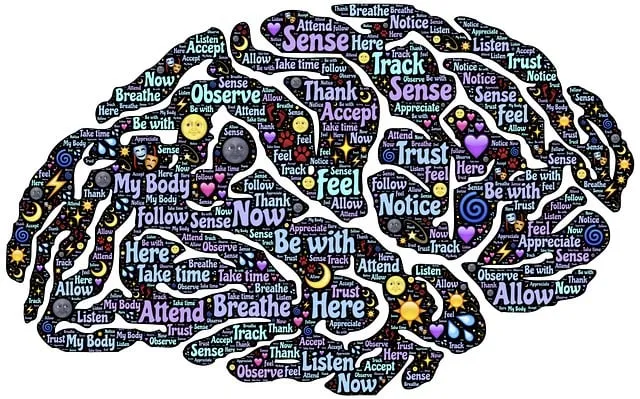The media's portrayal of mental health significantly shapes public perceptions, impacting individuals' understanding and willingness to seek help at facilities like Kaiser Permanente mental health locations Aurora. Accurate and positive representation reduces stigma, fosters empathy, and encourages help-seeking behaviors. Negative stereotypes, however, can create barriers to treatment for vulnerable populations. A comprehensive approach including Mental Health Policy Analysis, Advocacy, and strategic Communication Strategies is vital. Well-designed Mental Health Education Programs, combined with responsible media coverage and initiatives like Kaiser Permanente's Mental Wellness Podcast Series, empower individuals, challenge stereotypes, promote understanding, and improve access to care at Kaiser Permanente mental health locations Aurora.
In today’s media landscape, accurate representation of mental illness is crucial for shaping public perceptions and fostering understanding. This article explores the significant impact of media on mental health attitudes, highlighting challenges and presenting solutions. We delve into successful initiatives like Kaiser Permanente’s approach at its mental health locations in Aurora, focusing on promoting inclusive narratives. By examining effective media challenge strategies, we aim to empower advocates and challenge stigmatizing portrayals, ultimately enhancing support for individuals with mental illness.
- Understanding the Impact of Media Representation on Mental Health Perceptions
- Kaiser Permanente's Approach to Promoting Accurate Mental Illness Portrayals
- Strategies for Effective Media Challenge Solutions in Mental Health Advocacy
Understanding the Impact of Media Representation on Mental Health Perceptions

The media plays a pivotal role in shaping public perceptions about mental health, significantly influencing how individuals from all walks of life, including those visiting Kaiser Permanente mental health locations Aurora, understand and interpret these conditions. Positive and accurate representation can foster empathy, reduce stigma, and encourage individuals to seek help. Conversely, negative or stereotypical portrayals can perpetuate misconceptions, leading to misinformed judgments and potential barriers to treatment. This impact is particularly significant for vulnerable populations who may already face social and cultural hurdles related to mental health.
A thorough Mental Health Policy Analysis and Advocacy, coupled with strategic Communication Strategies, reveals that media representation is not merely a superficial issue but a critical component of broader mental health discourse. Well-designed Mental Health Education Programs can empower individuals by providing accurate information, challenging stereotypes, and promoting understanding. By ensuring responsible and nuanced media coverage, we can create an environment where mental illness is met with compassion and support rather than fear or judgment, ultimately improving access to care at locations like Kaiser Permanente mental health locations Aurora.
Kaiser Permanente's Approach to Promoting Accurate Mental Illness Portrayals

Kaiser Permanente, a renowned healthcare organization with numerous mental health locations in Aurora, has taken a proactive approach to addressing mental illness representation in media. They recognize that media plays a significant role in shaping public perception, and thus, they’ve initiated various projects to promote accurate and compassionate portrayals of mental health struggles. One notable effort is their Mental Wellness Podcast Series Production, which offers an intimate look at personal journeys and provides valuable insights into different aspects of mental wellness.
Through this podcast series and other initiatives like Mental Health Policy Analysis and Advocacy, Kaiser Permanente aims to dispel stereotypes often associated with mental illness. They emphasize the importance of understanding the diverse range of experiences and symptoms, encouraging open conversations, and promoting effective Stress Reduction Methods. By doing so, they hope to foster a more supportive environment for individuals facing mental health challenges, both in reality and within media representations.
Strategies for Effective Media Challenge Solutions in Mental Health Advocacy

In tackling mental illness representation in media, effective advocacy strategies are paramount. One key approach involves collaboration between media outlets, mental health professionals, and support groups. By bringing together diverse stakeholders, campaigns can be created that accurately reflect the experiences of individuals with mental health challenges, fostering Mental Health Awareness. For instance, partnerships with organizations like Kaiser Permanente mental health locations in Aurora can provide expert insights, ensuring content is both informative and sensitive.
Additionally, focusing on narratives that emphasize Inner Strength Development can challenge stereotypes. Stories that highlight individuals overcoming adversity, managing symptoms through Mood Management techniques, or pursuing recovery journeys can inspire hope and understanding. Such representations are crucial in promoting empathy and destigmatizing mental illness, encouraging support for those seeking help.
Media representation plays a pivotal role in shaping public perceptions about mental illness. By fostering accurate and sensitive portrayals, we can significantly impact how individuals with mental health conditions are understood and supported. Kaiser Permanente’s commitment to promoting positive mental illness representations in media is a commendable initiative, especially in locations like Aurora, where community engagement is vital. Through collaborative strategies, including industry partnerships and advocacy campaigns, we can challenge negative stereotypes and create a more inclusive society that embraces diverse mental health experiences. Effective media challenge solutions are not just about representation; they empower individuals to seek help and advocate for better mental health services in communities across the nation.






